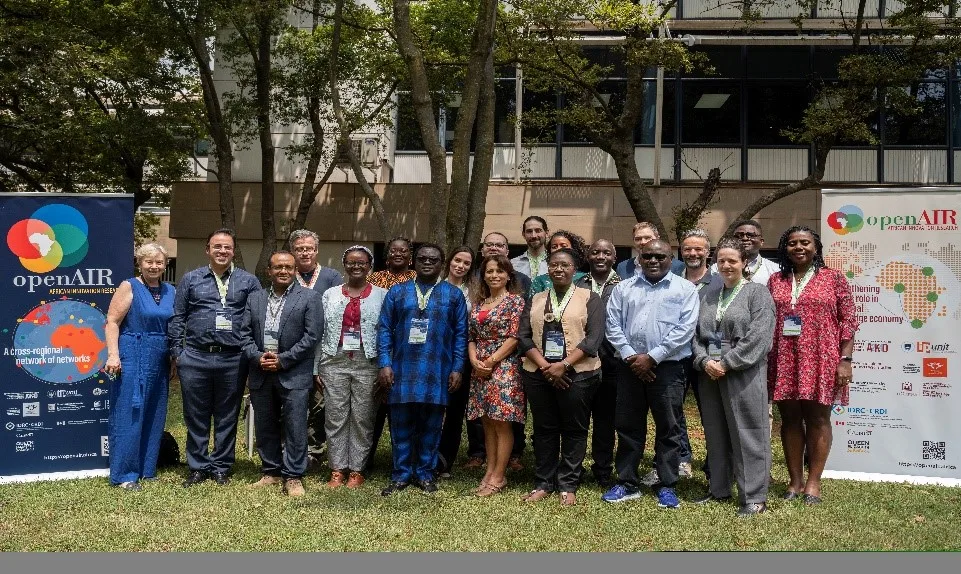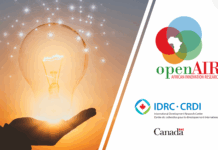Caroline Wanjiru Muchiri
On Friday 1st March 2024, a group of individuals drawn from various sectors gathered at the University of Johannesburg Business School to discuss innovation agencies in Africa (UJ Workshop). This conversation happened against the backdrop of a three-day conference under the theme Transforming Africa: Innovating our way towards sustainability. More about this conference can be found here. The dialogue about innovation agencies and their place in the innovation ecosystem was therefore very timely.
The workshop main objective was to foster the establishment and strengthening of collaborative network among African Innovation Agencies. The workshop provided participants with a rare opportunity to share best practices, resources and knowledge that spur innovation that would drive sustainable and inclusive development across the African Continent. In Africa, innovation agencies have numerous toles including catalysts, incubators, de-riskers, and financiers of innovation. They are key in connecting dots and laying the foundation for crucial relationships within the innovation stream in their respective countries. These agencies are key facilitators and builders of crucial relationships and links between innovators, investors, government, and markets. Often established at national level, the agencies support innovators in their countries in various ways including setting up policy frameworks and scaling innovation. However, these efforts remain at the national level.
A network by African agencies for African countries would not only be a powerful and unified voice but a co-learning and co-creating platform for the agencies and their respective countries. Such networks will be increasingly critical to achieving the goals set under the African Continental Free Trade Area (AfCFTA). The AfCFTA remains the world’s largest free trade area with more than fifty (50) countries as members. AfCFTA’s Agenda 2063: The Africa We Want is a long-term commitment by these states to transform the continent to a global powerhouse. Invariably, innovation will (and is) play a key role in laying the foundation for the achievement of this goal. Noting the critical role innovation agencies play in the national innovation systems, a coalition of the agencies would be an formidable force in the collective transformation of the African continent and its innovation systems.
A scoping study of Innovation agencies in Sub-Saharan Africa by the Trilateral Research Chair in Transformative Innovation, the 4IR and Sustainable Development found that Innovation Agencies in Africa take different shapes and forms. Agencies differ in purpose, structure, mission, and type of support they provide. In Kenya for instance, the innovation agency is a state agency with specific mandate of coordinating, promoting and regulating national innovation system. In other countries such as Zambia the private sector plays a central part in connecting innovators and catalyzing innovation. According to the study, innovation systems in Africa are not uniform. The scoping study characterized the African innovation systems into three. First, fragile innovation system which is either due to social instability or conflict or because they are economically strained). Second, viable innovation system which is either nascent meaning lacking supportive institutional frameworks, well developed industrial and/or skills or gradual improver meaning evolved at slow but steady pace supported by basic institutional structures for innovation. Third, evolving innovation systems which is either adaptive innovators meaning they are responsive to global market demands or transformative innovators meaning they are adopting and adapting existing technologies coupled with active investments in niche sectors and at times defining entire industries.
Despite these differences, one thing is constant: that innovation agencies are central to and in African innovation systems. They fulfil this role in a multifaceted way. This includes as organizations on their own right, ‘connectors’ of the innovation system stimulating key interactions and linkages across the system. A conversation between innovation agencies and stakeholders in Africa is crucial. With this goal in mind, the UJ Workshop brought together representatives of African agencies, organizations supporting innovation and development in Africa, regional bodies fostering science, technology, and innovation; experts and scholars working in the field of innovation in Africa. As an African scholar and member of the Open African Innovation Network (Open AIR) this researcher joined the conversation with the goal to participate and enrich this key dialogue.
For this author, this experience was enriching from two distinct fronts amongst others. First, the workshop participants were drawn from various sectors all with key and albeit diverse contributions to innovation in Africa. This created an enabling environment for prospective multidisciplinary and transdisciplinary conversation. It was greatly inspiring to be in the same room as government representative, industry players, private sector, funders, and continental, regional bodies, and academia in the sphere of science technology and innovation. Such efforts should be lauded as they bring wholesome results noting the multi-faceted nature of innovation. In particular African innovation.
Second and critical to this NERG, was the inclusion of budding researchers and seasoned innovation researchers in the conversation. While such opportunities are crucial for academic career growth and development, emerging researchers often struggle to network and establish connections with seasoned researchers. The Workshop organizers drew the participants from varied research backgrounds and periods. They also focused on giving the emerging researchers the chance to share their thoughts and have their voices heard. This created room for ‘old’ and ‘new’ voices to share a platform and forge potential working relationships moving forward. In case you are wondering dear reader, this author is a new and emerging researcher currently pursuing her PhD studies. So being included is essential. She is part of Open AIR New and Emerging Researcher’s Group abbreviated as NERGs. This workshop and platforms such as the NERGs are powerful tools for academic researchers because they put them in spaces where they would otherwise find hard to access.
To conclude, a detailed workshop report including insights from the session will be available for the public in the coming days. This NERG shall follow up with the activities at TRCTI and share the key insights from the report on this website.
Support: This workshop was supported by the International Development Research Centre (IDRC) in collaboration with the National Research Foundation (NRF) with the scoping study carried out by the Trilateral Research Chair in Transformative Innovation (TRCTI).
By Caroline Wanjiru Muchiri










